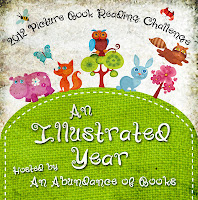I'm delighted to have a guest post from Tom Palmer, author of great thrillers for older readers and adventures for younger, based around football and rugby. Tom has fantastic resources on his website for teachers, parents and children, and wrote a great free story based on Euro 2012 football championship. He is passionate about getting children and families excited about reading. Do check out the Free Reads section of his website! Thank you, Tom!
Free Olympic football wall chart from coventry2012.blogspot.co.uk
The Olympics is a great opportunity to get children reading
for pleasure. And there is no better time for the Games to be taking place than
during the school summer holidays.
Parents know that children’s writing and reading skills can
slip back during the six week break in July and August.
If an Olympic athlete
was to stop training for six weeks, it would take them months to get back to
their previous fitness and skill levels.
The same can be argued for children. Research has shown that
if you keep children interested in literacy during the summer, over their whole
school career they can be as much as three years ahead of their peers who did
not.*
I’ve put together some tips for parents who want to use the
Olympics to keep their children reading for pleasure. I hope it helps.
One. Read about the Olympics yourselves. If your children
see you reading about something, they are more likely to read about it too. Find
bits you think they’ll be interested in and draw them in.
Two. Leave newspapers, magazines and books about the
Olympics around the house. Perhaps on the sofa or wherever you are going to be
watching the games. Charts. Lists. Pictures. Anything that you think will
attract their attention.
Three. Deliver an Olympic Games newspaper supplement or magazines
to your child’s bedroom door on the morning of a big competition. Try and find
a copy of the children’s newspaper, First
News, which is bound to feature the Olympics strongly.
Four. Print off interesting articles/profiles/wall charts
and stick them up around the house. On the fridge. In the toilet. On their
bedroom wall.
Five. Go to your local library, bookshop or newsagents with
your children and browse the Olympics reading sections that are now stuffed
with materials. Let your child choose something to read about the games. There
is some really good non-fiction around, from biographies of sporting greats to
guidebooks to the games aimed at kids.
Six. Have a look at the new Olympic fiction by authors like
Owen Slot, Robert Rigby and others. It is easy to find in bookshops, libraries
and online at the moment. If your children are still happy to, read it with
them at bedtime in chunks.
Seven. Create some kind of prediction game in your household
where you all have to guess who is going to win a game, competition or race.
Encourage the children to read the Olympic pull-outs from newspapers, that
should give them an idea of who the favourites are. Keep a tally throughout the
Games to see who wins. Provide a prize.
Eight. Find out if your local library is doing any Olympic
events. Many are. Author visits, activity days and other such things are
planned nationwide. Visit your council website, find the libraries link and
they should have a list of their summer activities. There will probably be
summer craft activities too.
Nine. Find a good website about the Olympics and have it as
your home page if you have a computer at home. There is lots of excellent
journalism on the internet about the Olympics.
Ten. Join the Summer Reading Challenge, a six-book reading
quest for children in libraries throughout the UK, where children can earn
bronze, silver and gold stickers for reading books over the summer. More info
at
www.summerreadingchallenge.org.uk.
While you are there look at the sports section. Has one sport in particular
excited your child? If so, libraries have great sections of ‘How to Play’ books
on their shelves.
I hope some of this helps. If it does and your children like
football, there are lots of free football literacy activities and free stories
on my website at
www.tompalmer.co.uk.
Check out the
Free Reads and
Schools & Library sections.
Tom Palmer writes
sports fiction for Puffin Books, HarperCollins and Barrington Stoke. Tom is running 28 Olympic reading events in libraries during
the summer across England. Find out where and when at his blog www.footballdetective.blogspot.com. You’ll be very welcome.
* Sadly I cannot find
the references for that research, so you’ll just have to take my word for that.









